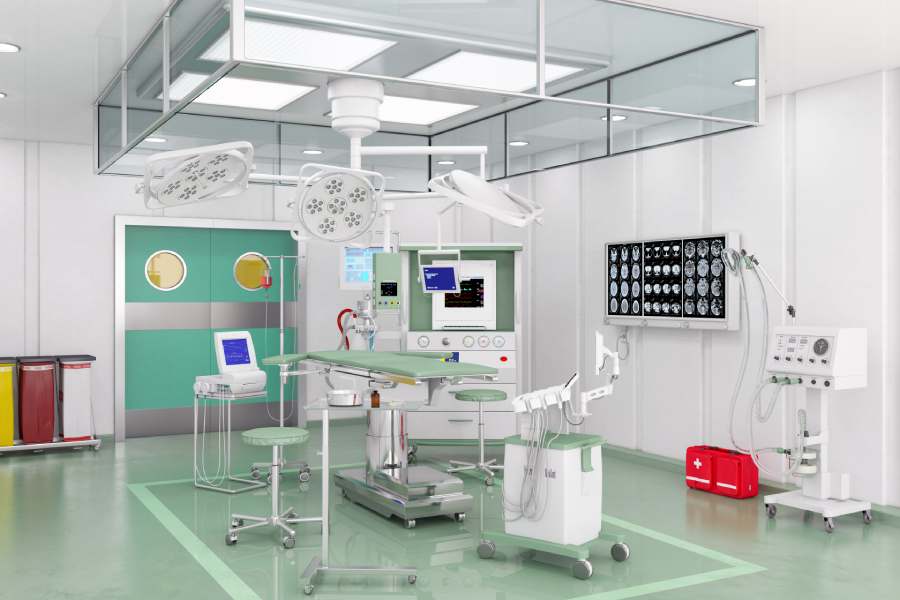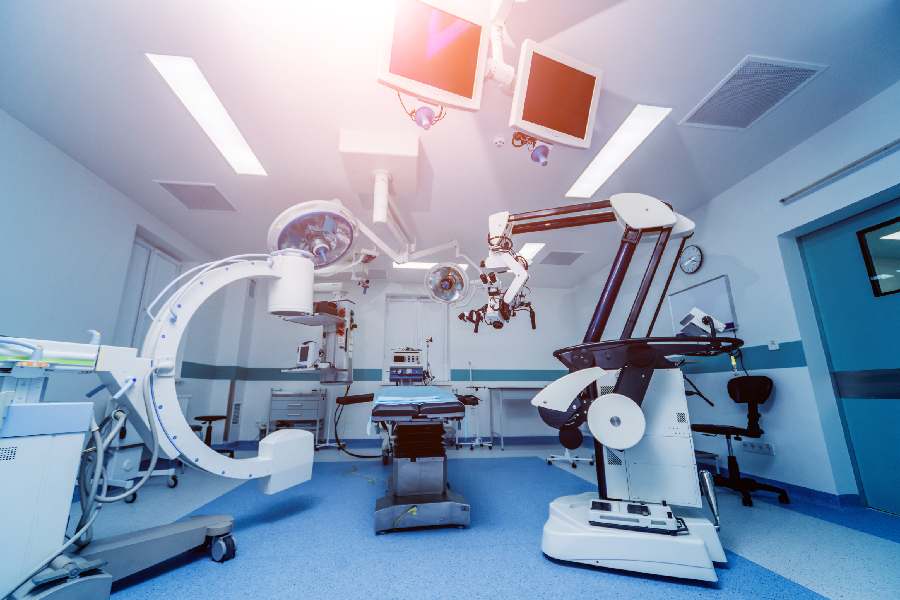Who Can Own an Ambulatory Surgery Center?
An ambulatory surgery center is a medical establishment where patients receive surgical procedures without requiring an overnight hospital stay. Determining who can own an ambulatory surgery center requires knowing the state and federal regulations and licensing requirements.
ASCs provide convenient and affordable surgical services to patients who require minor to moderate surgical procedures or medical treatments. They are equipped with modern medical equipment and employ medical staff like surgeons, anesthesiologists, and nurses. They can have various specialties, such as orthopedics, ophthalmology, gastroenterology, etc.
For anyone interested in investing in these facilities, it’s essential to understand the ownership regulations. They’re there to ensure patients’ safety, uphold ethical practices, and promote high-quality care.
The article will primarily discuss the regulatory considerations regarding the ownership of ambulatory surgery centers.
Who Can Own an Ambulatory Surgery Center
When it comes to ASC ownership, there are mainly three types of entities that usually enter the venture. Individual healthcare practitioners, i.e., licensed physicians, and surgeons, can have ownership stakes in ASCs. In terms of organizations, hospitals, healthcare systems, and medical groups can also take part in ASC ownership.
There are business-owned ASC models where individuals and organizations without a healthcare background can own and operate an ambulatory surgery center. It’s often done in partnership with healthcare professionals and facilitating their expertise.
With their clinical expertise, efficient decision-making in relevant situations, and a patient-centric approach, individual healthcare practitioners are well equipped to own and run an ASC and answer to all the challenges of the role.
Meanwhile, healthcare entities have the necessary resources to invest in state-of-the-art medical equipment and bring the administrative expertise essential to running a healthcare facility.
The regulations stimulate the ASC ownership to be with a medical professional or a healthcare entity because only they can guarantee the necessary clinical expertise to uphold protocols and adhere to high healthcare standards. These regulations ensure that medical decisions will be made by qualified healthcare professionals and won’t be influenced by financial considerations.

The regulatory landscape of ASC ownership
The ASC ownership is subject to various laws and regulations both at the federal and state level. The most common types of owners include physicians and surgeons, as well as healthcare organizations like hospitals. There are many cases of joint ownership, where individual healthcare professionals partner with larger healthcare organizations or investors.
A partnership with bigger entities allows healthcare professionals and establishments to combine their clinical expertise with the necessary financial resources, ultimately leading to mutual benefit and enhanced services.
State vs Federal ASC regulations
State and federal regulations complement each other in the process of governing healthcare practices. In terms of ASC ownership, state regulations govern the licensing and dictate the ownership requirements. In contrast, federal regulations set the standards for participation in programs like Medicaid and Medicare, concerning issues like insurance, healthcare practices, and reimbursement.
State regulations
- Each state has its own licensing and accreditation
- Address issues related to the scope of services, credentials of medical staff, and operating hours
- Determine the facility standards for ASC
Federal Regulations
- Valid across the country
- Regulate Medicaid and Medicare participation
- Address issues like fraud and abuse of healthcare services
- CMS and OIG oversee the enforcement of federal laws and regulations
Overview of key laws and requirements
The regulations surrounding ASCs are complex, especially as they need to comply with state and federal laws. The well-being of the patients and the overall quality of care provided in ASCs are key factors that influence the implementation of stringent regulations.
The key laws and requirements are enforced by the state and federal governments. An ASC must comply with both sets of regulations to ensure a safe environment and a satisfactory quality of service.
Notable state laws
State laws are unique for each state, with guidelines and regulations potentially varying significantly from one state to another. Here are some prominent state laws for ASC facilities:
- Certificate of need is a law that requires ASCs to obtain approval from the state’s health authorities prior to opening new facilities or expanding on the current ones;
- Physician ownership laws refer to having healthcare professionals as owners or as part of the ownership structure of the ASC;
- Licensing and inspection requirements;
- Standards for size and equipment requirements of operating rooms;
- Credential requirements for surgeons, nurses, anesthesia providers, etc.;
- The state determines the scope of services provided by an ASC;
- Infection control protocols;
- Ethical standards for privacy and patient rights.
Notable federal laws
The federal laws are valid all across the country and mostly aim to protect the rights of the patients. Here are some of the most important federal laws which are relevant for ASC establishments:
- The Affordable Care Act is a healthcare law aimed to introduce reforms in the insurance market and broaden the market for health insurance;
- Medicare Access and CHIP Reauthorization Act ACA implemented to introduce a merit-based payment program;
- Health Insurance Portability and Accountability Act or HIPAA is a federal law that sets the standards for the security of protected health information;
- Stark Law prohibits physicians from referring Medicare or Medicaid patients for services with entities in which they’re involved in any way;
- Anti-Kickback Statute makes it illegal to offer, pay, solicit, or receive any remuneration in exchange for referrals of patients covered by federal healthcare programs;
- False Claims Acts imposes liability on individuals or entities that knowingly submit false claims for payment to the federal government;
- Emergency Medical Treatment and Labor Act, or EMTALA, requires healthcare establishments that participate in Medicare to provide emergency medical services to anyone seeking treatment regardless of their ability to pay for the service.
Requirements for ASC accreditation and licensing
The requirements for ASC accreditation and licensing is mostly determined by the state laws. There are mandatory requirements and many accreditations that ASCs acquire voluntarily to validate their capacity to provide a quality service.
Facility standards
These requirements aim to ensure a safe and efficient patient and staff environment. The facility standards address different aspects of the physical structure, equipment, and safety protocols of the facility. Here are the most prevalent facility standards:
- Building codes and regulations for the facility’s structural integrity and compliance with safety standards;
- Sanitation and infection control standards to ensure that rigorous protocols for preventing infections are implemented;
- Emergency preparedness of the ASC facility is proven through having comprehensive plans and protocols for handling medical emergencies and evacuations;
- Fire safety regulations compliance, including the installation and maintenance of fire alarms, extinguishers, and emergency exits;
- Equipment and Technology-wise, ASCs must be adequately equipped to perform the procedures and servicer that they offer. The equipment needs to be well-maintained and functional;
- Accessibility for individuals with disabilities,
- Operating room standards, including design and organization.
Licensing requirements
The state determines the licensing requirements for ASCs which means they can differ from one another. They are necessary to establish the facility’s legal operations and prove that it meets the health and safety standards. Some of the most common licensing requirements are:
- Facility inspections to ensure that the facility meets the health, safety, and sanitation standards. The inspections are the duty of state health departments, and their requirements may vary;
- Staff credentials are submitted to the relevant bodies to prove the capacity of the staff to execute the services on offer;
- Quality improvements programs refer to the ASC facility having to demonstrate their programs for continuous improvement of the care they provide;
- Compliance with state regulations regarding healthcare operations, patient care, etc.;
- Accreditations may be required in some states.
Patient rights and informed consent
The ASC must respect the patient’s rights and informed consent ethical practices. They protect the patients’ autonomy and ensure they have the necessary information to make an informed decision. Some of the patient rights include:
- Patients have the right to be treated with respect, dignity, and without discrimination. This is regardless of their age, gender, race, or any other characteristic;
- Right to privacy and confidentiality includes keeping their medical data safe and secret;
- Patients have the right to refuse treatment or intervention;
- Patients have the right to access their own medical records and request corrections;
- Right to safe and quality medical care;
- Right to be free from restraints unless it’s necessary to protect their safety.
Equipment
Having the right equipment and technology is a crucial requirement for getting ASC accreditation. The facility must possess the capacity to support a wide range of procedures by owning and operating advanced technology medical equipment.
These are the key considerations for equipment:
- Surgical equipment must be diverse and well-equipped to satisfy the needs and procedures on offer. This includes surgical tables, anesthesia machines, endoscopes, laparoscopic instruments, etc.;
- Imaging and diagnostic technology such as X-ray machines, ultrasound systems, and other radiological tools help with assessment;
- Monitoring devices that aid in tracking vital signs and ensure patient safety
- Anesthesia delivery systems;
- Electronic health records to effectively manage patient information;
- Telemedicine technology for remote consultations, virtual follow-up visits, and collaboration with specialists;
- Communication systems that provide reliable and effective coordination among surgical teams and support staff;
- Medical devices and supplies;
- Regular upgrades and equipment maintenance.

Ownership models
Physicians and other medical professionals are always involved in running the facility in one way or another, but there are different ways the ownership can function. Here are some of the ownership models for ASCs:
Physician ownership
Physicians are a natural fit for becoming ASC owners as they tend to possess the necessary knowledge and experience relevant to running a facility of that kind. Another important contributor is the alignment of medical professionals’ interests with the ASC’s success.
In the role of an owner, a physician is motivated for their facility to provide the best possible care to patients and have many positive outcomes. Having good results will mean a good reputation for the facility and consequently, a higher revenue. As an owner of the ASC, the physician can do only ⅓ of the surgeries in their surgery center.
Using their in-depth knowledge and experience, physician owners can design the center to meet the specific needs of the patients. Having a patient-centric approach ranks high on the list of prerequisites for an ASC’s success, and having a physician in charge is the best way to be sure that the patient’s safety and well-being will be the number one priority.
Regarding the Stark Law and the possible conflict of interest which may arise, physicians are required to disclose their affiliation with their facility when recommending its services. The Stark Law protects Medicare and Medicaid patients from potential fraud, making that the physicians cannot refer to services with whom they or some family members have a financial relationship with.
Furthermore, the Anti-Kickback Statute prevents rewarding referrals to government healthcare programs. Moreover, this regulation prevents the offering of payments, goods and other remuneration in exchange for certain referrals, or prescriptions, to name a few. Adhering to these laws is an absolute must for physician-owned ASCs.
Non-physician ownership
Non-physician ownership refers to healthcare companies, hospitals, and investors being the main stakeholders of the ASC. These entities usually possess a higher capacity for investment in the facility’s infrastructure, equipment, and recruitment. They also bring a wealth of experience in the administrative side of the venture, especially in aspects such as billing and regulatory compliance.
A non-physician-owned ASC must still comply with the various requirements designated in the state and federal laws. Regardless of the ownership model, the quality of the service remains a priority in the running of an ASC establishment. Here are some possible models of non-physician ownership:
- Hospitals can own and operate ASCs as part of their network for the purpose of improving their services
- Healthcare management companies that specialize in managing ASCs or similar facilities
- Private equity investors
- Corporate ownership
Joint ventures and partnerships
It refers to situations where various entities join forces with physicians or other healthcare professionals in the running of an ASC facility. The ownership structure can vary depending on the percentage of ownership on each side.
Physicians enter formal agreements with non-physician entities and both parties contribute with what they have to offer. Such ventures allow physicians to maintain their autonomy and influence over the medical operations in the ASC while benefiting from the contributions of the non-physician entity.
Physicians provide the know-how and experience for developing a patient-centric approach for the facility. This includes aspects like designing the establishment to cater to the needs of the patients, selecting the proper equipment, and making the right hires for the specific service it provides. The partner entity would provide the capital and theo other necessary resources and infrastructure including equipment, space and knowledge to handle the administrative side of the venture.

Corporate practice of medicine laws
These laws protect the integrity of the doctor-patient relationship as they aim to remove the possibility of a conflict of interest. The state determines the extent to which an ownership can be shared and with what type of entities.
Many states have CPM laws that limit the ownership of facilities like ASCs only to physicians or physician groups. Some ASC ownerships are required to have at least 51% ownership and in some states, the involvement of non-physician entities isn’t allowed.
Summary
Ambulatory surgery centers are medical establishments that provide same-day surgical procedures and interventions. The demand for such facilities is high because they provide patients with a convenient and cost-effective option.
There are state and federal laws that regulate the functioning of ASCs with the state being more concerned with the conditions and patient safety and federal laws being more focused on insurance and reimbursement programs. Different states have various requirements for licensing and set the standards for the facility and equipment.
ASCs have different ownership models where they can be owned by an individual or a group of physicians or various types of partnerships with medical establishments or private investment companies. To ensure patient safety, many states regulate who can own an ambulatory surgery center.
The ownership is regulated to be most available to physicians because they have the necessary knowledge for providing treatment. Still, private entities are capable of providing capital for various investments in building the infrastructure, buying the equipment, and recruiting.





